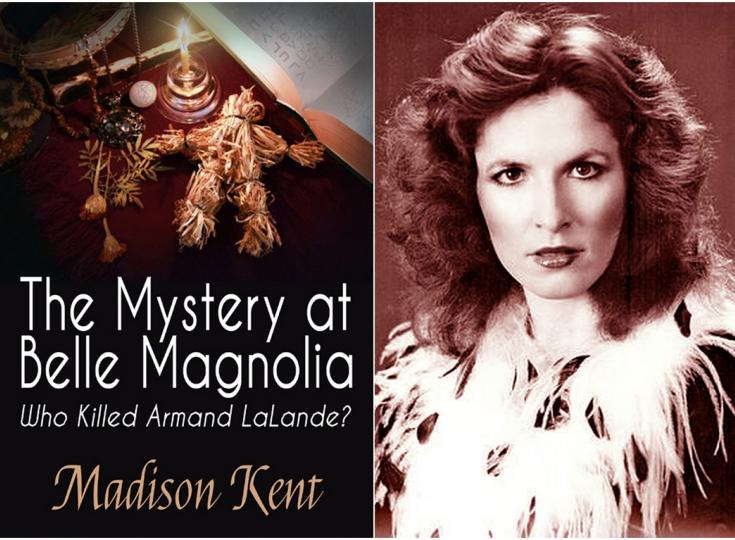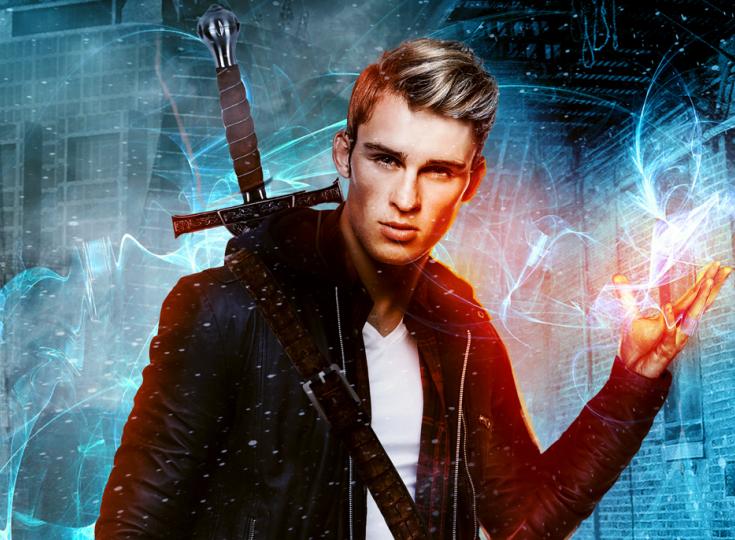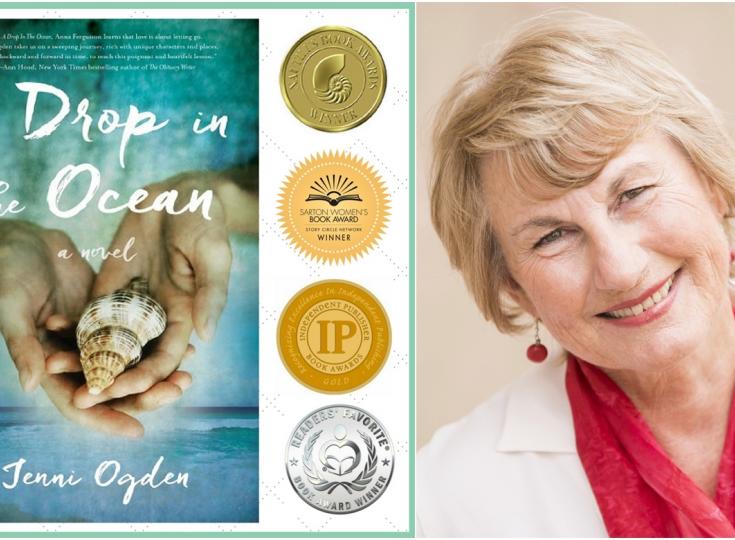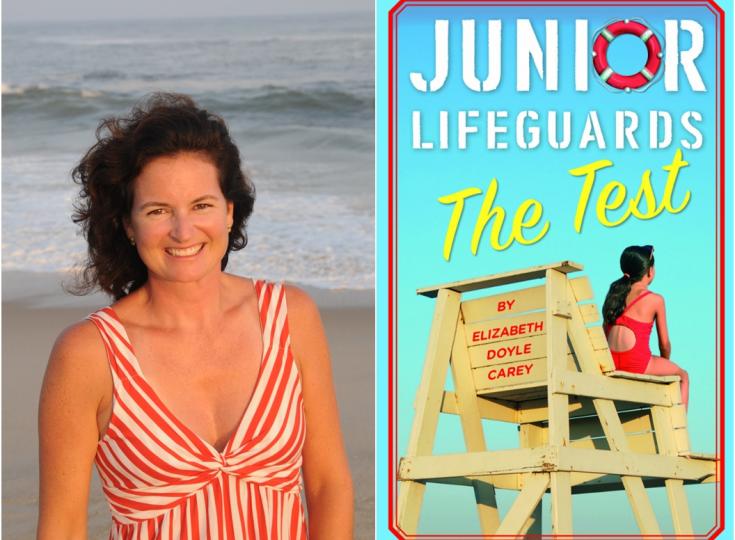D.C. Alexander - Gripping Thrillers With a Psychological Edge
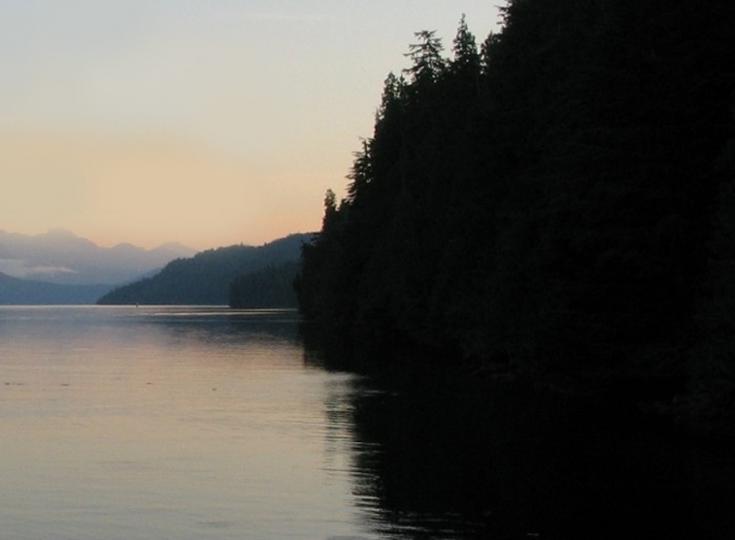
When D.C. Alexander is not writing #1 Amazon Kindle bestsellers like The Legend of Devil's Creek, he enjoys spending time in a small cabin in Aravaipa Canyon, Arizona. Alexander's books are known to be dark, mysterious and very thought provoking. As our Author of the Day, we chat with Alexander about downhill skiing, darkness as an universal force and get a peek into what it takes to write edge-of-the-seat thrillers.
Please give us a short introduction to The Legend of Devil's Creek
The plot centers on a series of grisly, ritualistic murders of child abusers on a remote island in Washington State. The killings appear to mirror those described in a century-old local ghost story. A world-weary police captain struggles with severe psychological problems as he races to identify the killer. To this end, he tries to establish whether the modern-day murders are somehow linked to events in the island's dark and violent past. At the same time, a group of friends at the island's small college faces growing evidence that the killer may be someone from their circle.
What inspired you to write this book?
The story was initially inspired by my reflections on the many discussions I've had with close friends over the years concerning how we each think childhood experience and upbringing has influenced who we've become, what psychological baggage we're contending with as adults, and so forth. Then came 9/11. I lived and worked in the Washington, D.C. area at the time, and was close enough to hear the airliner hit the Pentagon and watch a column of black smoke rise from it for days and days. Needless to say, it made quite an impression on me. In the aftermath, I began to wonder what sort of childhood might turn someone into a psychopath, murderer, and/or terrorist.
John Marshall not only has to figure out who the murderer is, but he also battles with his own memories. Why give him this troubled past?
I thought that having a character who has already seen the darker, more terrible side of humanity would provide a different, more informed perspective and understanding of the nature and possible causes of evil.
Do you believe that there may be a dark, universal force that drives evil deeds?
In a way, I do. But I tend to think it's a force of human nature and psychology rather than any sort of "dark" or supernatural thing. I don't want to give too much away with my answer here. However, I have to mention that while I was in the process of writing "The Legend of Devil's Creek," I stumbled upon a Pulitzer Prize-winning book by the late cultural anthropologist Dr. Ernest Becker called "The Denial of Death." I found that his book did a far better job than I ever could at explaining this very idea. It's a sobering work, but definitely worth a look. Anyway, the theory that evil could have a primary wellspring or ultimate source is a major theme of my story.
Besides writing an edge-of-your seat thriller, you also wove some very thought provoking themes into the book. Why did you take this approach?
In part, I was just writing about things that I find interesting. Also, in endeavoring to give the characters some depth, I found myself thinking and writing about the forces that shape who we become. Along the same lines, I'm sure I was influenced by my personal preference for stories that have a little more to them than straight action. Don't get me wrong—I love action, tension, intrigue, and so forth. But I also love it when books make me think or give me a better understanding of the world and my place in it. I hope my story does that for some people.
In which way is The Legend of Devil's Creek also a coming of age story?
As the mystery unfolds, you see the main character, Riddley, come to recognize the tremendous value of his sheltered childhood—something he'd previously blamed for his self-perceived social ineptitude, lack of confidence, and so forth. At the same time, he sees how the childhood experiences of his friends helped shape who they've become—for better or worse.
Which character did you find the most challenging to create?
Riddley, without a doubt. I think that because I related to him more than the other characters, I had I great deal of trouble not turning him into a young adult version of myself. Needless to say, each character carries around some small part of me. But with Riddley, it was a real struggle to keep him who he needed to be for the story, and not have him end up thinking and doing things the way I would have at that age.
Do you plot out your books before writing? Do you know how it is going to end before you get started?
I always know how they are going to end, at least in a general sort of way. With my newer books, "The Shadow Priest" and "Chasing the Monkey King," I sketched out a basic plot outline of three or four pages, and started writing from there. However, for "The Legend of Devil's Creek" (which was my first novel), I spent several years building and tweaking an outline. By the time I started writing the story, the outline was more than 100 pages long. In retrospect, I think this was a far more difficult way to start. I found that I was constantly pausing to look ahead in the outline to make sure I wasn't writing anything out of sequence. There were several independent plot threads I was trying to weave together with proper timing. It was quite a hassle. In fact, it took me at least three times as long to write "The Legend of Devil's Creek" as it took me to write either "The Shadow Priest" or "Chasing the Monkey King." The experience taught me to avoid going overboard on outlining and preplanning.
Besides writing, what other secret skills do you have?
I'd like to think that I'm the greatest downhill skier ever. And my fried chicken and biscuits are the bomb. But I can't dance or play basketball to save my life.
Do you have any interesting writing habits? Favorite writing spot?
My favorite place to write is my mother-in-law's cabin in Aravaipa Canyon, Arizona (see attached photo). It's a restored homesteader's cabin on one of the few perennial creeks in the desert southwest. It sits in the shade of cottonwood trees, on the edge of a pecan orchard, below hills of saguaro cactus. At night you can see the Milky Way and listen to coyotes cry across the hills.
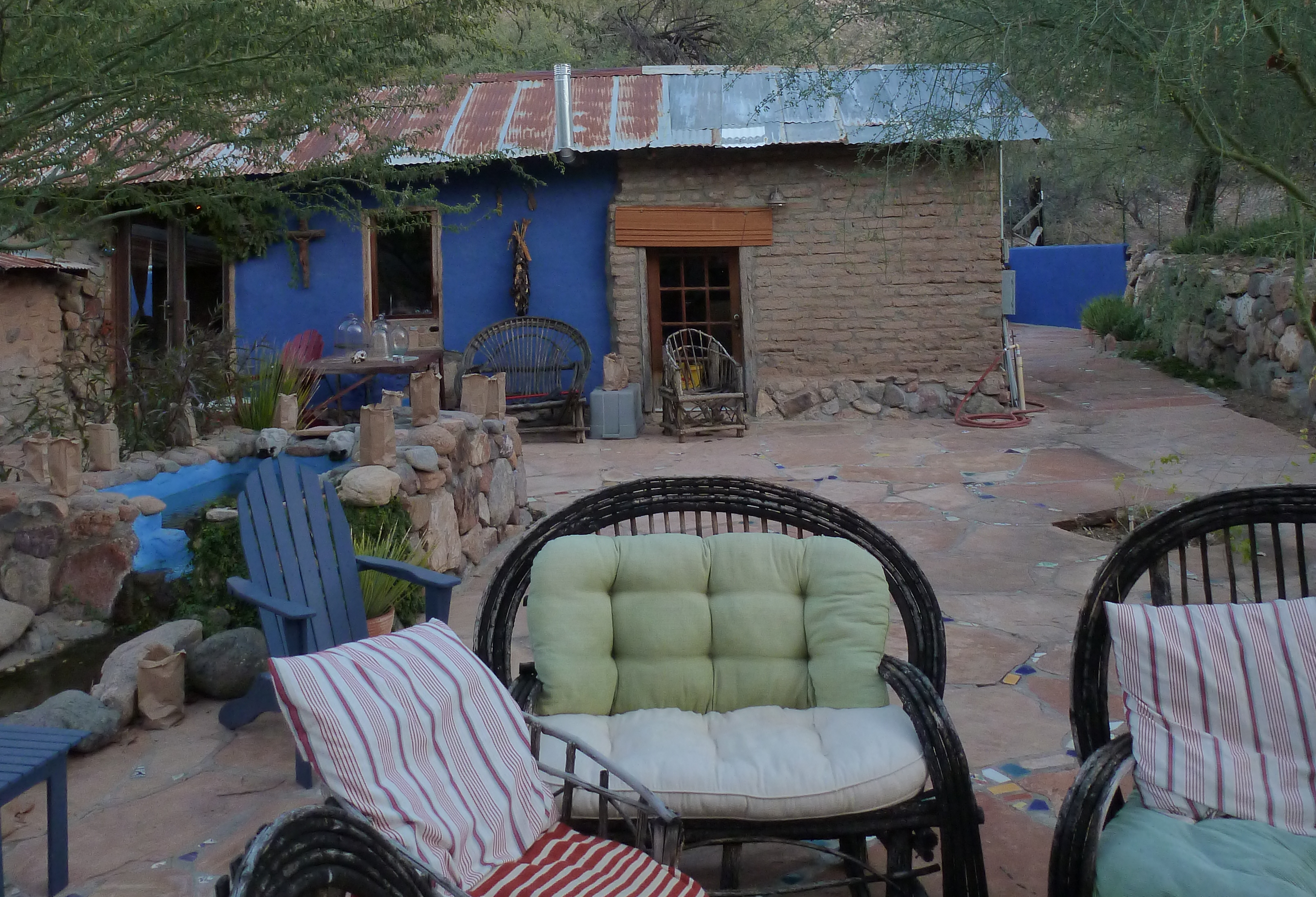
As far as habits are concerned, I'm a person who really needs to write first thing in the morning. If I start my day with manual tasks, my creative side goes into hibernation. It drives me nuts. Ideally, I'll glance over an outline or notes as I'm going to bed (hoping my subconscious will ruminate on things while I sleep), get up the next day feeling creative, grab a cup of coffee, and get to writing. I'm at my most productive when things work out that way.
Where do you like to go for inspiration?
Oddly enough, a fair number of ideas come to me while I'm on my treadmill in my basement. There's absolutely nothing inspiring about the location (picture white walls, fluorescent lights, junk stacked everywhere). Maybe the exercise gets my creative juices flowing.
What are you working on right now?
I am working on the sequel to "The Shadow Priest." I'm hoping to crank it out in the first half of 2017.
Where can our readers discover more of your work or interact with you?
All of my books are available on Amazon. I welcome emails at: [email protected]
